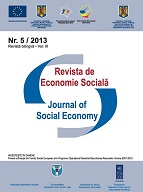


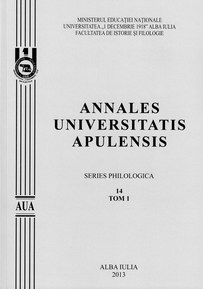
Keywords: preface; author; reader; discourse; pragmatics
G. Mihailă, in his study Beginnings and self-consciousness of the old Romanian literature (in Romanian literature history, Studies, scientific coordinator Zoe Dumitrescu Bușulenga, Bucharest, R.S.R. Academy Publishing House, 1979), wrote about Dawn of Humanism and the Renaissance in the Romanian Lands. The first texts in Romanian (16th century), after quoting translations of manuscripts and publications of the time and stating: "Obviously, in strictly literary terms, prefaces and epilogues of books are valuable manifestos.... " (p. 57). We note here the special value of different preambles and epilogues accompanying texts in ancient literature and extend G. Mihaila’s observation to the texts of the 17th century, without minimizing their literary value. The texts preceding or following the printed texts themselves, shed light on how the author assumes his condition, be it original texts altogether or compilations and translations, because these scholars were not only simple translators, who carried out a painstaking work, which involves selecting, processing, adaptation and harmonious combination of so many sources into a single text. Therefore, we use the term author with a broad meaning, even as the initiator of an act of culture. These preambles and epilogues stand for the author’s speech, who feels the need to justify his work to the readers. As regards the need of justification, Dominique Maingueneau (Pragmatics for the literary discourse, translation Raluca-Nicoleta Balaţchi, Iaşi, European Institute, 2007) considered: "The mere act of speaking (for proposing a work to the public works does not mean making a superlative speech?) is a specific territorial incursion that requires remedial action. All forms of captatio benevolentiae loved by rhetoric are only an illustration of this need" (p. 163). This "part of text negotiation" as called by pragmatics, is found usually in the prefaces, forewords and preambles of various types. Starting from these premises, the present paper proposes an approach of the literary discourse in terms of pragmatics based on two such texts belonging to Metropolitan Varlaam, scholar artist who is among the key figures of the Romanian humanism in the 7th century. The two texts subject to our analysis are: Cuvântul către cetitoriu al Cazaniei (1643), Predoslovie la Cartea care să cheamă Răspunsul împotriva catihismusului calvinesc (1645).
More...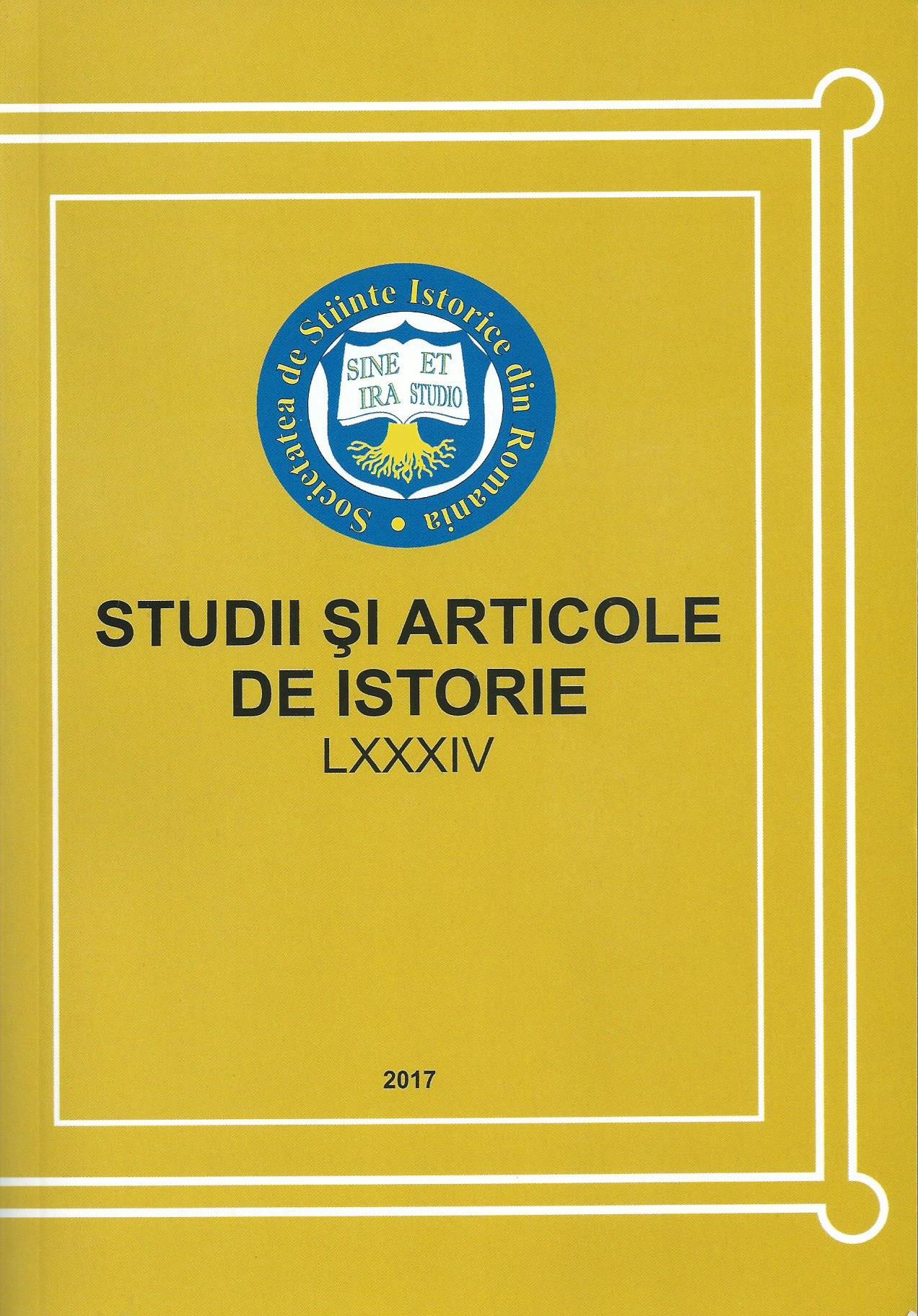
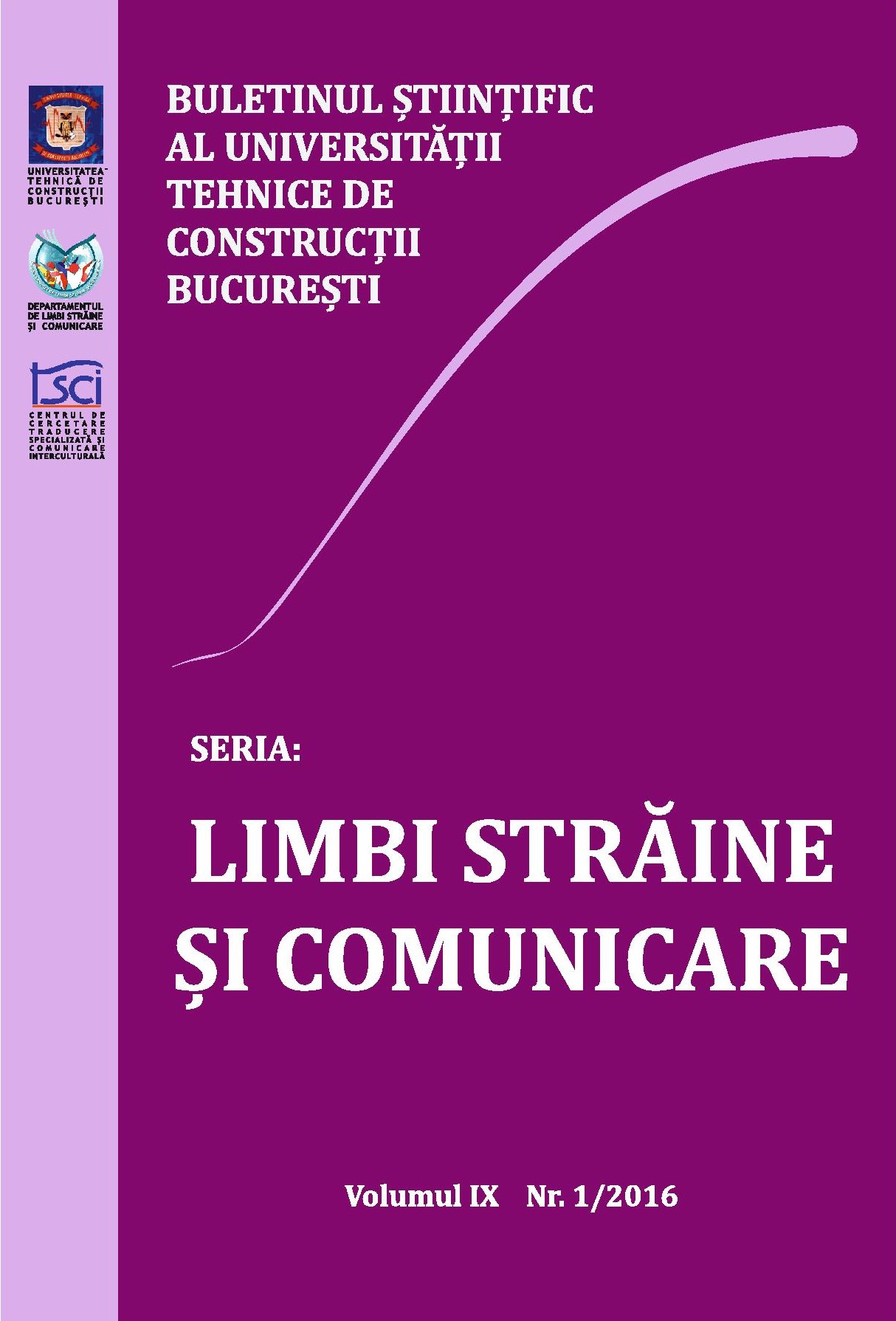
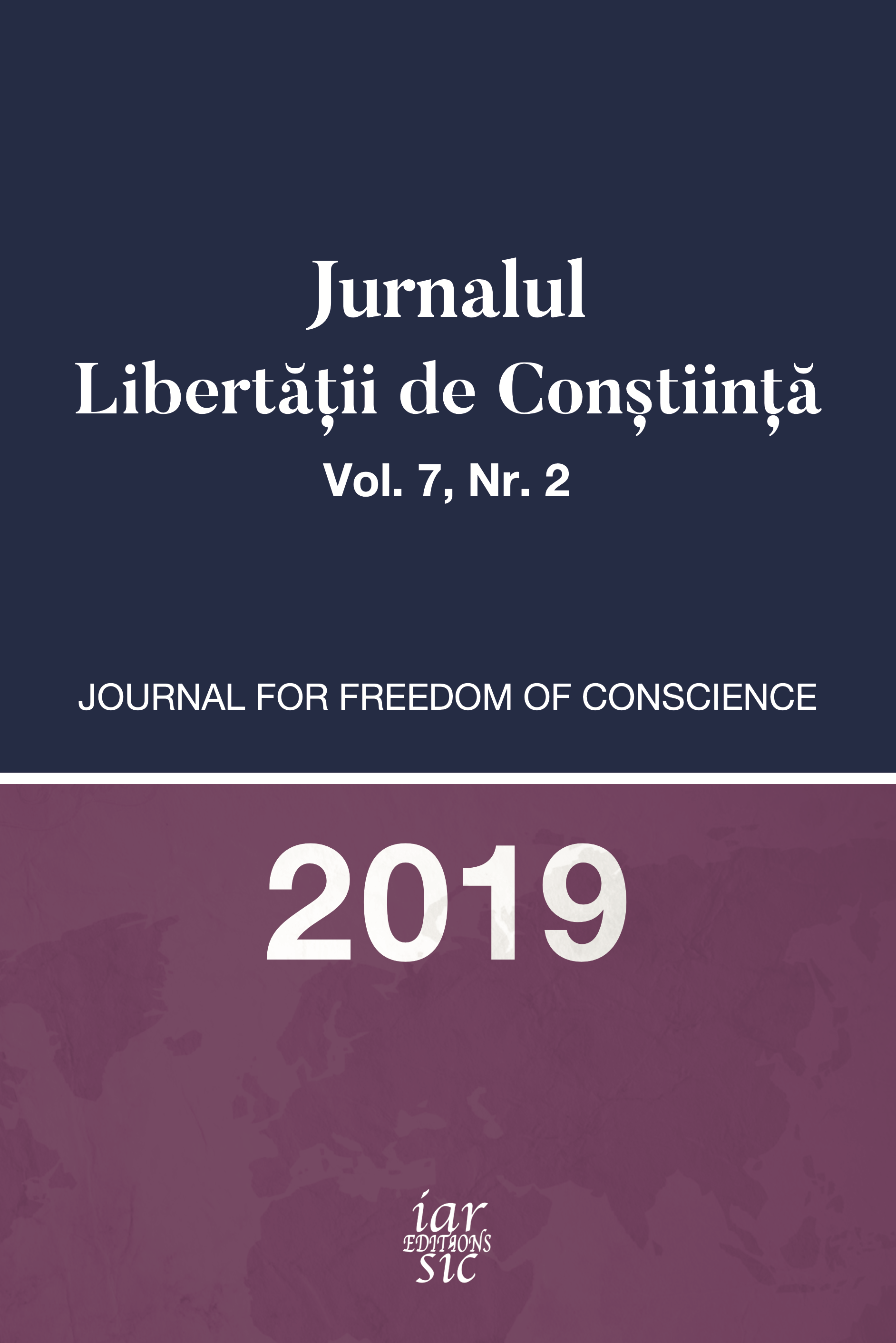
Keywords: human dignity; freedom of religion; freedom of expression; legislative framework; institutions; free wil;
The study addresses various aspect of freedom of religion and human dignity. Freedom of religion is a principle for which we also struggle today. As such, it is useful to know its evolution and there are authors who do exactly that, they highlight essential aspects in the evolution of freedom of religion over time. Regarding human dignity, freedom of choice is every citizen’s freedom to be consistent in their principles, respecting the ideas of others, developing relationships with other citizens, which finally leads to an improved quality of life. Thus, human dignity demands respecting others regardless of their philosophy of life. As Christians reporting themselves to their Christian identity, we need life plans based on moral principles, with reference to Divinity and afterwards to humanity, reasoning, being put into practice through personal intentions, abilities, and competences.
More...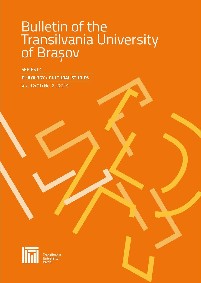
Keywords: verbal humour; isotopy-disjunction mechanism; functions of jokes; royal archive; co-operative principle;
This article focuses on the use of verbal humour in two royal contexts and aims toidentify, on the one hand, the structure of the joke and how the joke can be decipheredand, on the other hand, the communicative function(s) of the royal use of humour. Inaddition, the paper aims to prove that royal jokes are circumscribed to an ‘archive’, aparticular set of norms which, in spite of its flexibility, has its own boundaries. Theanalytical framework rests mainly on narrative and pragmatic approaches. Theinvestigation reveals that, being subject to the ‘archive”, royal jokes have to violate thecooperative principle and yet, the message manages to get through and context plays aparamount role in making the message clear. Furthermore, the paper shows howhumour can facilitate the exercise of some of the rights of a constitutional monarch: theright to encourage and the right to warn.
More...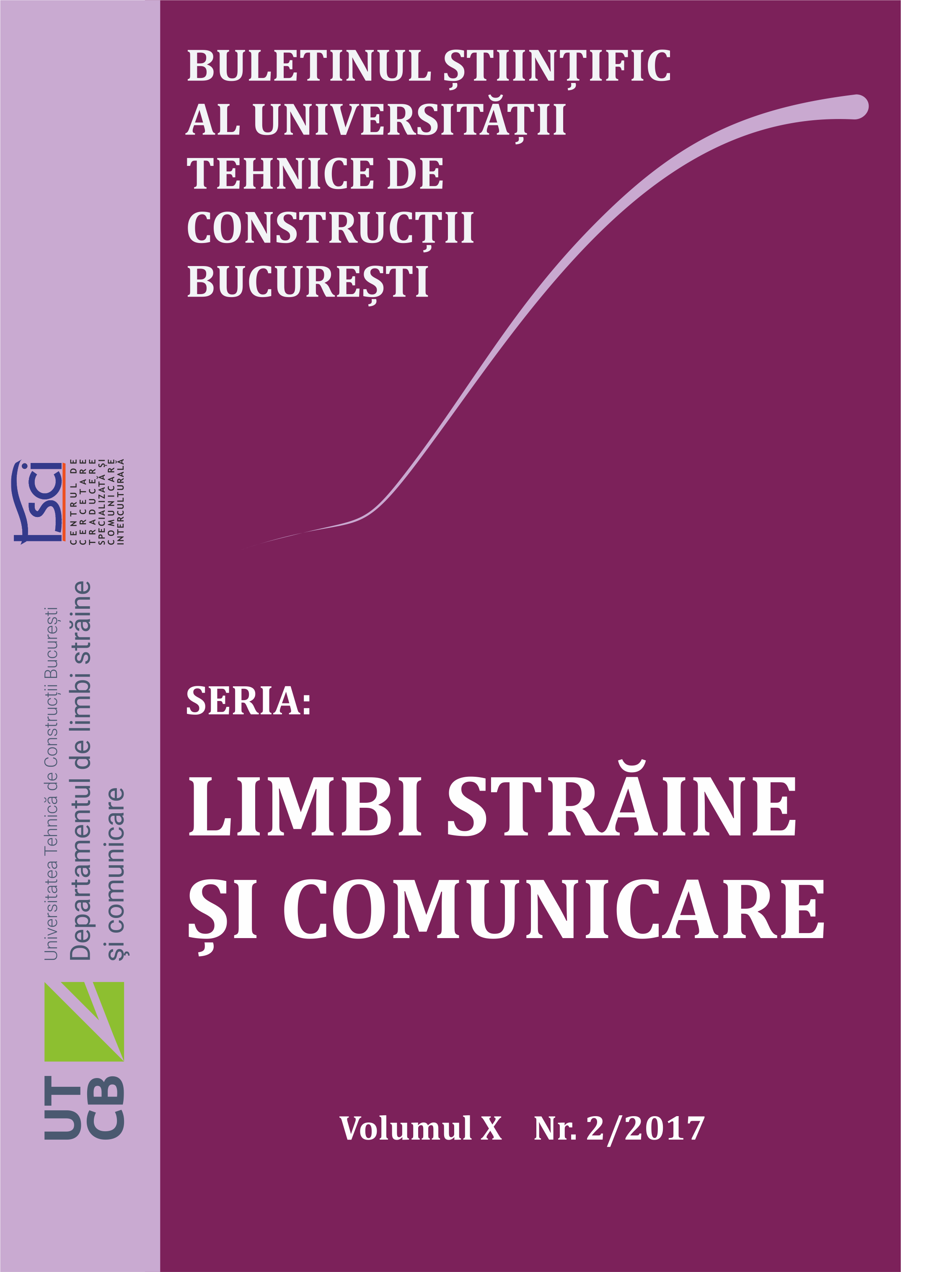
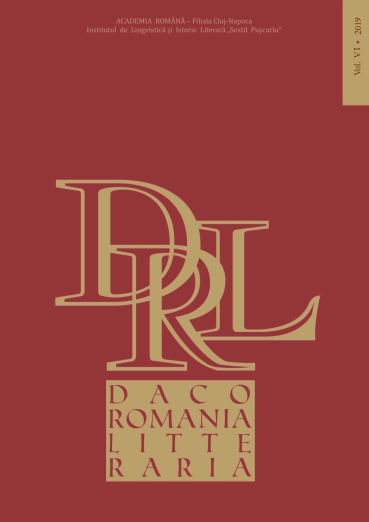
Keywords: rural literature; imagined rurality; national myth; literary history; E. Lovinescu; N. Iorga; G. Călinescu;
This paper analyzes the concurrent perspectives of the three Romanian literary histories (E. Lovinescu, History of Contemporary Romanian Literature – 1926–1929, N. Iorga, History of Contemporary Romanian Literature – 1934, G. Călinescu, History of Romanian Literature from Its Origins to the Present – 1941), in which rurality acquires the status of central constitutive factor of the theoretical and analytical system. Despite their programmatically divergent historiographical conceptions, Lovinescu, Iorga and Călinescu share – not at all paradoxically – almost similar (abstract, atemporal, aesthetic) projections of the rural universe. Consequently, the imagined rurality in the three histories of Romanian literature puts into crisis precisely what it should have underlined: their historical and/or national character.
More...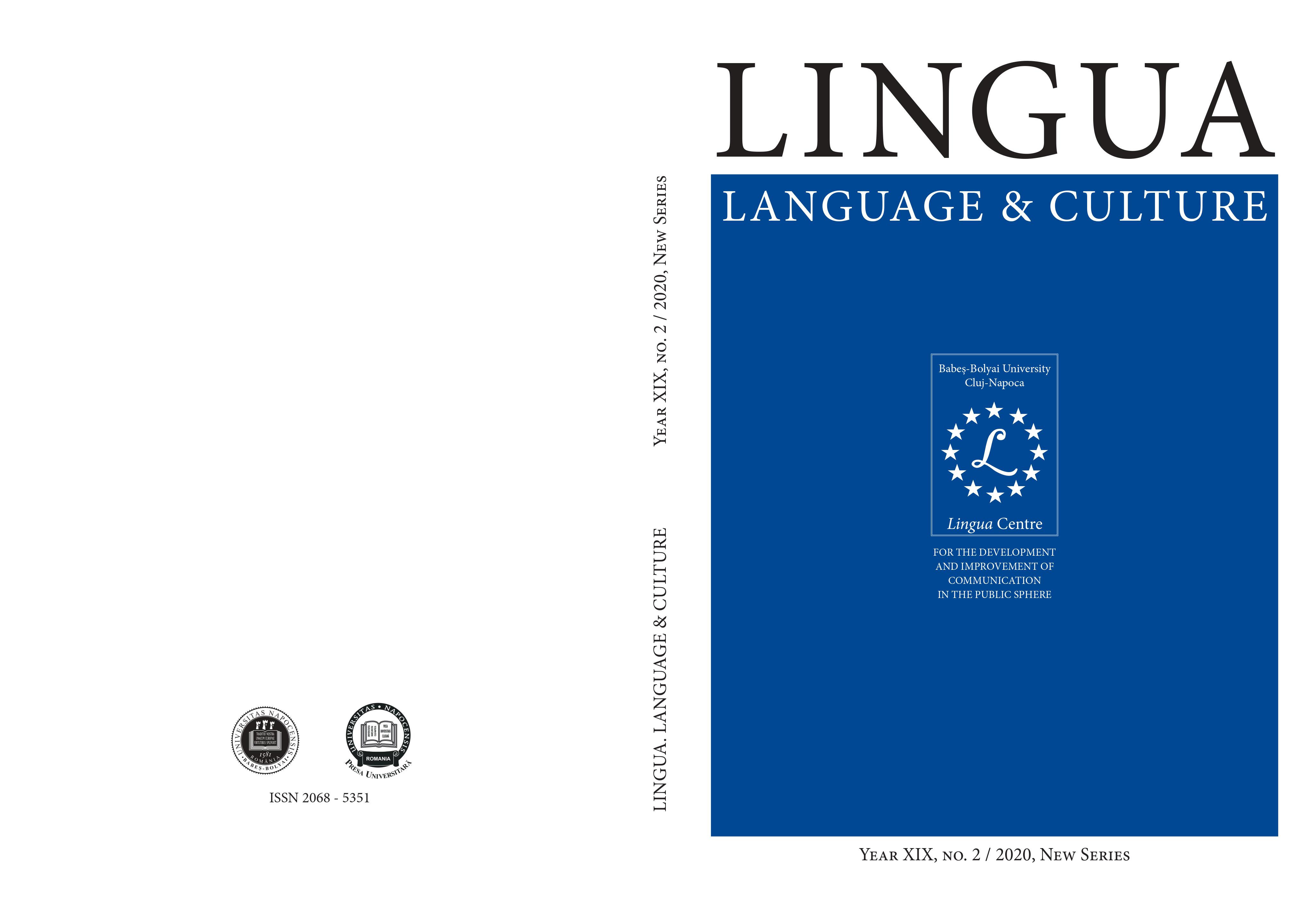
Keywords: interdisciplinary; historical studies; philological studies; Romanian studies;
The contributions collected in Oltre i confini. Il dialogo transnazionale nellediscipline storiche e filologiche, as the title itself shows, gravitate around two poles, that of philological-literary research and that of historical criticism. The papers illustrate the semantic potential of the word border and of the different ways of passing beyond, of overcoming the barriers between countries, concrete or abstract, but no less strong and insidious: mental, ideological or cultural barriers, which inevitably mark the human interaction and research.
More...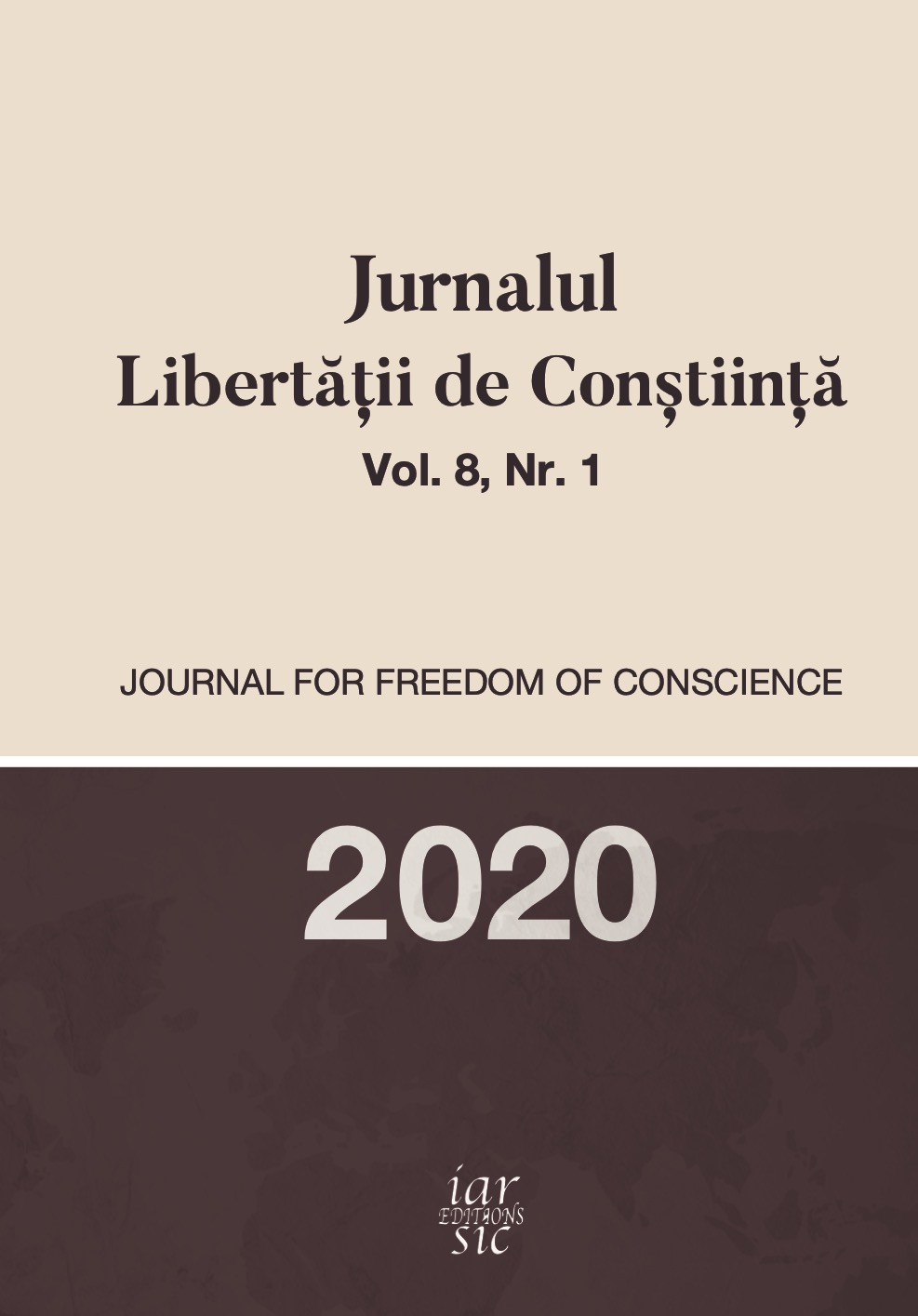
Keywords: freedom of conscience; integrity; social security; responsibility factors; necessary programs;
In the present study we make first of all an objective analysis of the Romanian rural environment from the point of view of transmission of the information, in the context of integrity and freedom of conscience. For example, we offer, unfortunately, two cases of violation of freedom of conscience in two rural localities, Urlați and Puchenii Moșneni, Prahova County. The stages in creating a climate equidistant for religious freedom in rural areas is another point of research, followed by the factors of responsibility needed to promote religious freedom in rural areas. In the last part of the study we list some programs meant to promote the universal human right to freedom of conscience in Romanian communes and villages.
More...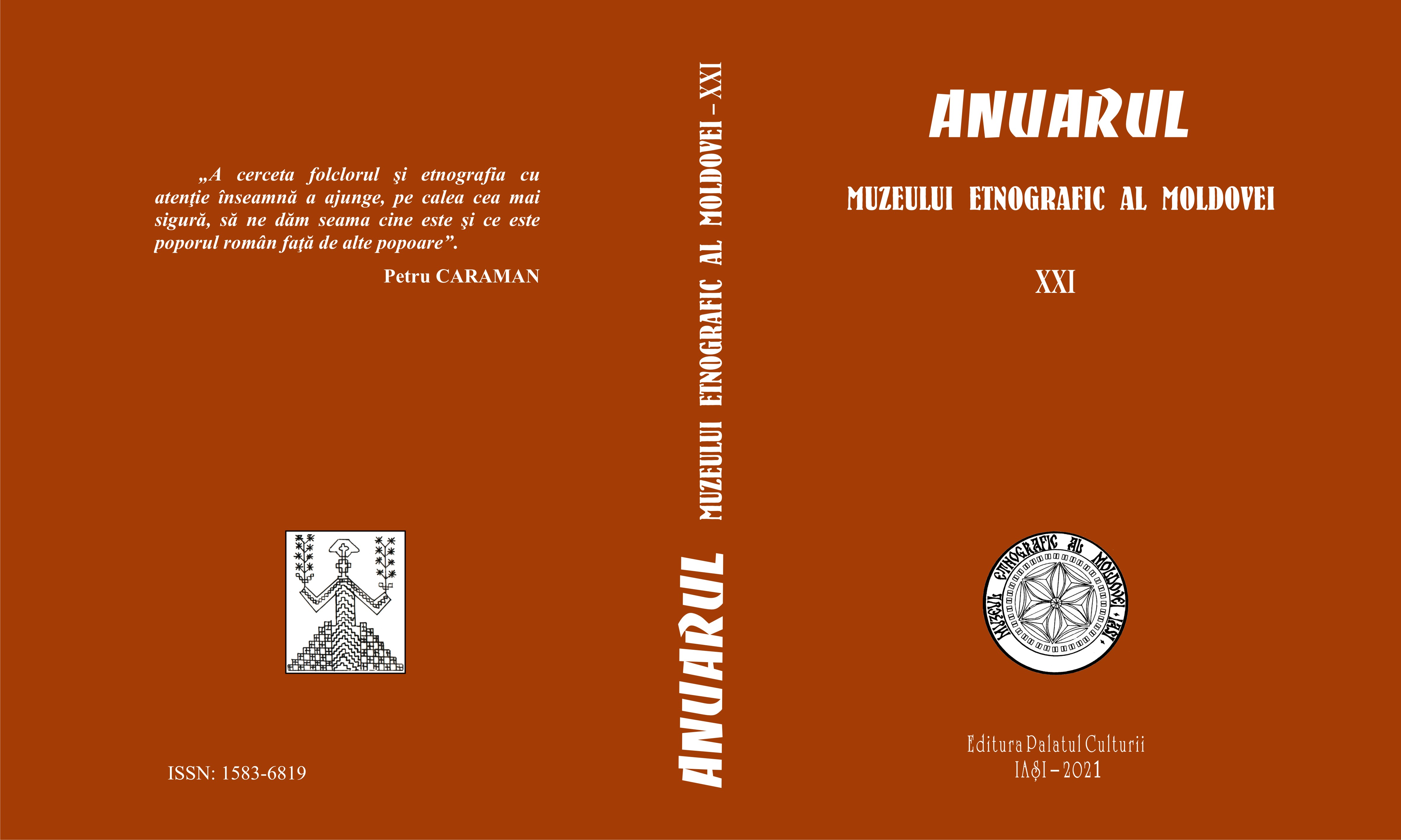
Keywords: museum; ethnography; semicentennial; anniversary; Bacău; foundation
In this anniversary article, the author presents some aspects related to the activity of the Ethnography Museum of Bacău. The Ethnography Museum of Bacău has been founded in 1971 and became a constituent part of “Iulian Antonescu” Museum Complex. At present, it contains a collection of over 4000 pieces from the three ethnographic areas of Bacău county – “Bacău”, “Trotuş” and “Colinele Tutovei”. The birth certificate of the collection can be considered the donation made by priest Vasile Heisu from Răcăciuni commune in the year 1971. He donated about 700 ethnography and folk art pieces. Part of these objects, mainly folk costumes and interior textiles, were integrated in the permanent exhibition inaugurated in the year 1972 at the headquarters of the City Hall of Răcăciuni Commune. Over the five decades since its foundation, the collection of the Ethnography Museum of Bacău has grown richer and richer due to acquisitions and donations. At present, it includes interior textiles (rugs, carpets, blankets, towels and so on), folk costumes, ceramics, wood art, objects that illustrate the main and secondary occupations, the traditional handicrafts or customs. The heritage is completed by photographs and negatives. The collection of the Ethnography Museum of Bacău is formed by a number of almost 300 carpets and rugs, cloths and blankets, dated the 19th century or the beginning of the last century. The collection of folk costumes is formed by over 1000 beautiful pieces from all the ethnographic areas of our county. And in this case, we have items from the end of the 19th century and the first half of the last century, such as fine samples of pleated peasant woman skirts, cotton and raw silk shirts, various raw silk head kerchiefs, girdles and belts, waistcoats, sheepskins and thick long coats. The ceramics collection includes over 600 clay vessels acquired from the ceramics centres of Bacău county. More than 1000 pieces belong to the traditional occupations – agriculture, viticulture, fruit growing, animal breeding, bee culture, hunting and fishing, but also to handicrafts such as blacksmithing, cooperage, basket and large corn baskets manufacturing.
More...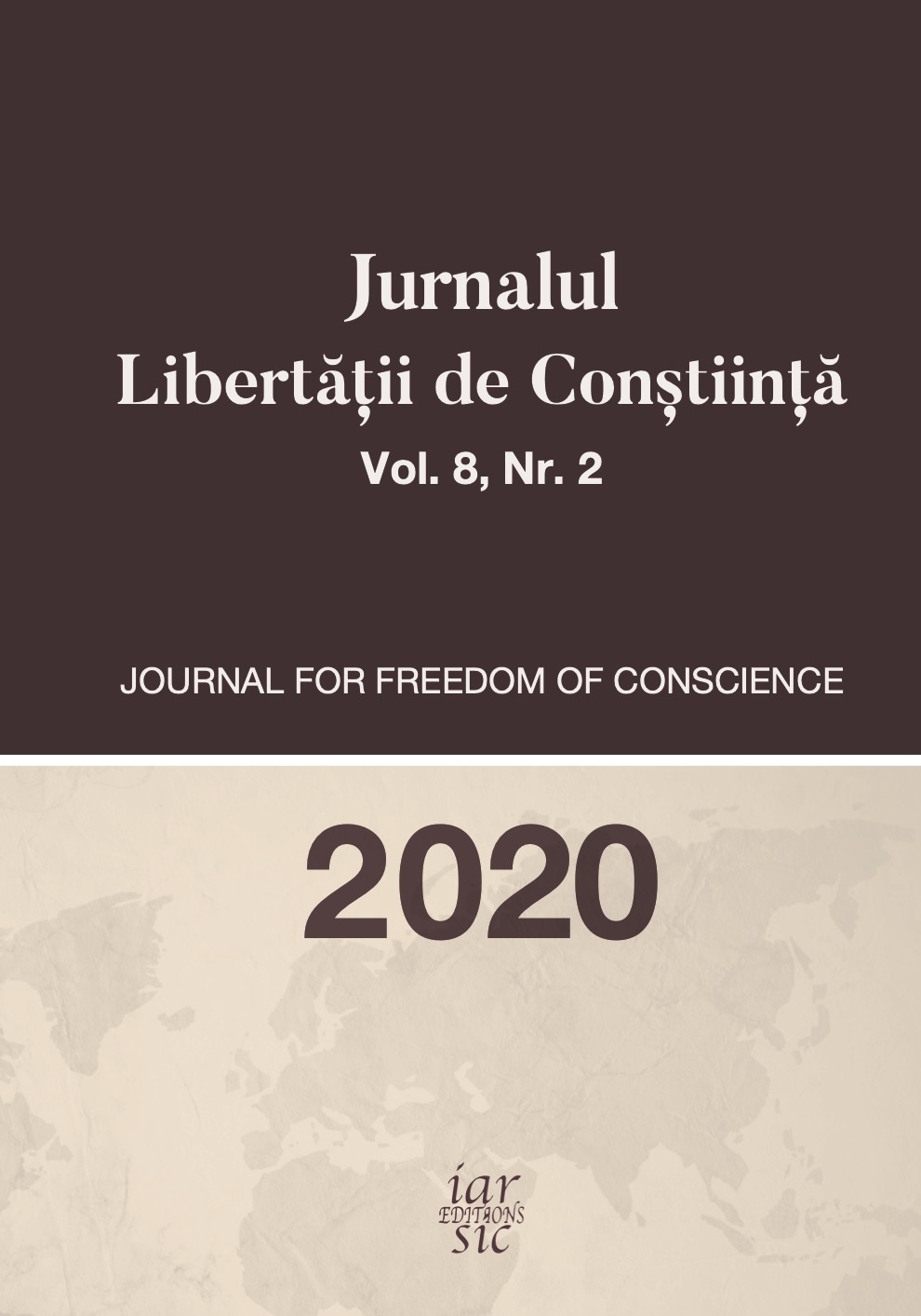
Keywords: human freedom; integrity; conscience; ethical conduct; responsibility;
Theological reflections on human freedom and freedom and integrity of conscience highlight the connection between God and man. Whether he wants the relationship with God or rejects His intervention in personal life, man remains bound to God through the freedom he receives as a gift and as a right, through creation. As long as God is perceived as the Creator, man can claim his freedom. At the moment of denying creation and the status of Creator of God, human freedom becomes a social choice, and freedom and integrity of conscience cannot be manifested in sensitive areas of social life, such as religion or faith. This aspect can be identified in countries with a totalitarian system, in which human freedom is missinterpreted. But, regardless of the social paradigms, intended to acknowledge or annihilate the freedom of man, it remains an ontological fact, through creation, for which man fights and which highlights the existence of a connection between man and his Creator.
More...Keywords: waste; contravention; legislative harmonization; waste management;
Proper waste management is a problem for today's society in different ways. An approach can be taken from the perspective of the obligations of public authorities, both at national and local level. Another approach is the one from the perspective of the obligations of the organizations involved in waste management, taking into account also their specific object of activity. However, the most important approach is the one from the perspective of each citizen, in his capacity as a natural person responsible for his actions. The awareness of the citizen, in the sense of his education, can be done including by enacting rules and applying sanctions in case of non-compliance. Thus, the Emergency Ordinance no. 92 of 2021 on waste management introduces new obligations that fall on individuals and new sanctions in case of non-compliance. This article, through its discussions on these provisions, aims to present the obligations in the broader context of environmental regulations and to educate and sensitize readers on environmental protection from the perspective of their daily actions of waste generation.
More...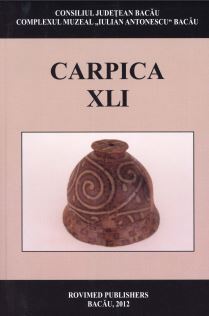
Keywords: numismatics; collection; medal collection; Heisu;
The impressive object collection that priest Vasile Heisu has donated to Bacau Museum, includes over 1500 pieces, collected over the decades that the collector has dedicated to this activity. Irrespective of whether they are of archeological nature (tools, ceramics), ethnographic (folk clothes, household items), numismatics (coins, medals) or church art items, as well as the rarity of the old Romanian or foreign books – all bear the marks of the collector’s noble passion. Among the few items of numismatic value, donated by the priest, we have found a medal dated from year 1802. In the paragraphs below we are trying to identify the origins of this numismatic item.
More...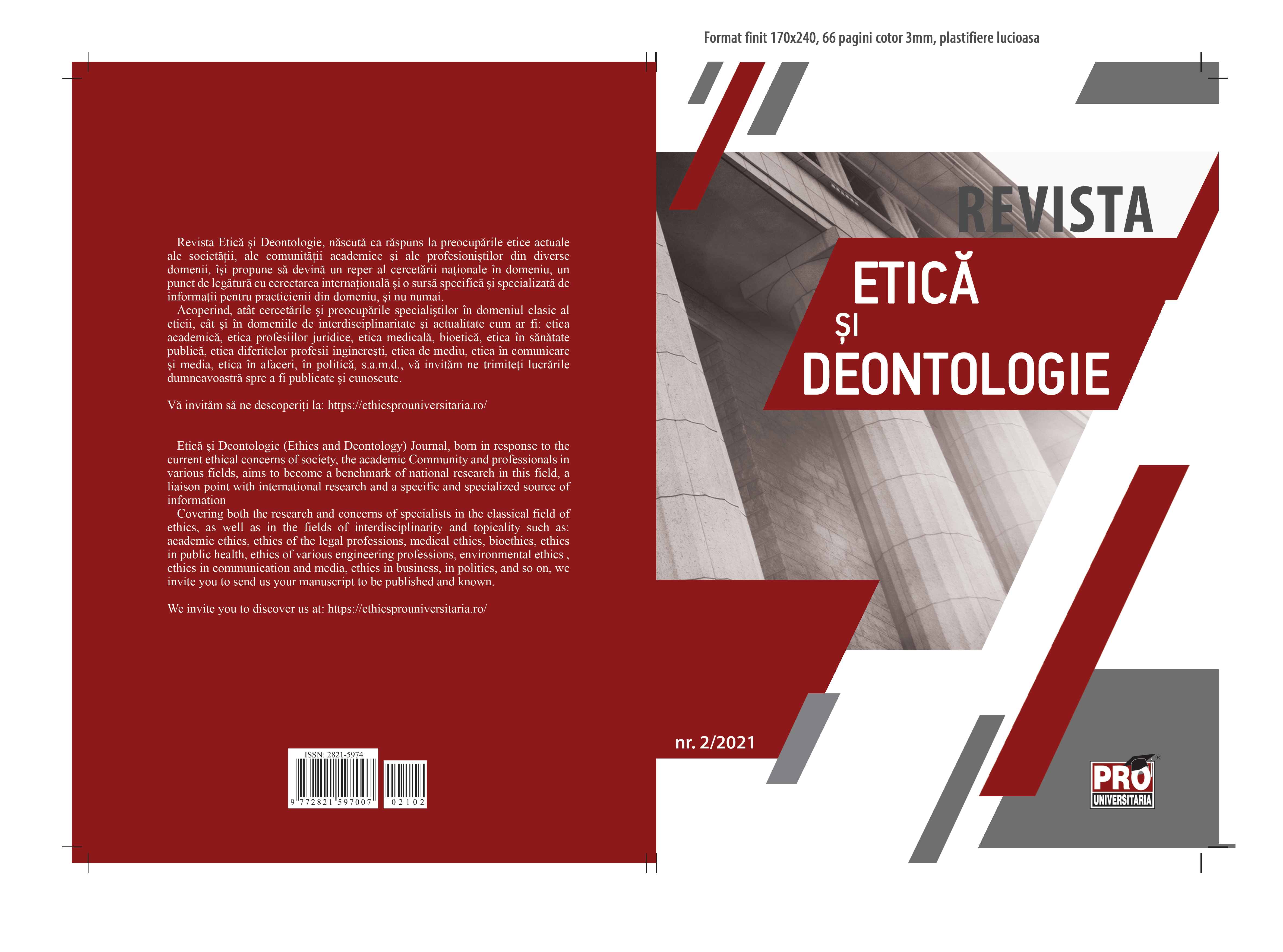
Keywords: ethics; environment; curriculum; sustainable development; engineering;
The new courses "Ethics and academic integrity" introduced in the curriculum of master's programs complete the educational process with its axiological dimension. In these courses, students and especially student-engineers are confronted with concepts such as morals, values, good conduct. Given the fact that higher education graduates will be part of a society that is developing in a sustainable way, there is an increasing need to identify bridges that link the purely technical training with the ethical aspects of technological development. respecting social and environmental values. This paper presents an argument for teaching the concept of environmental ethics in the new courses "Ethics and academic integrity" to students in the field of engineering, to create an opportunity for them to approach their knowledge from multiple ethical, social and environmental perspectives.
More...
Keywords: Public Officials and Employees; HG nr.931/2021; legislative news;
Hotărârea nr. 931 din 1 septembrie 2021 privind procedura de desemnare, atribuțiile, modalitatea de organizare a activității și procedura de evaluare a performanțelor profesionale individuale ale consilierului de etică, precum și pentru aprobarea modalității de raportare a instituțiilor și autorităților în scopul asigurării implementării, monitorizării și controlului respectării principiilor și normelor privind conduita funcționarilor publici.
More...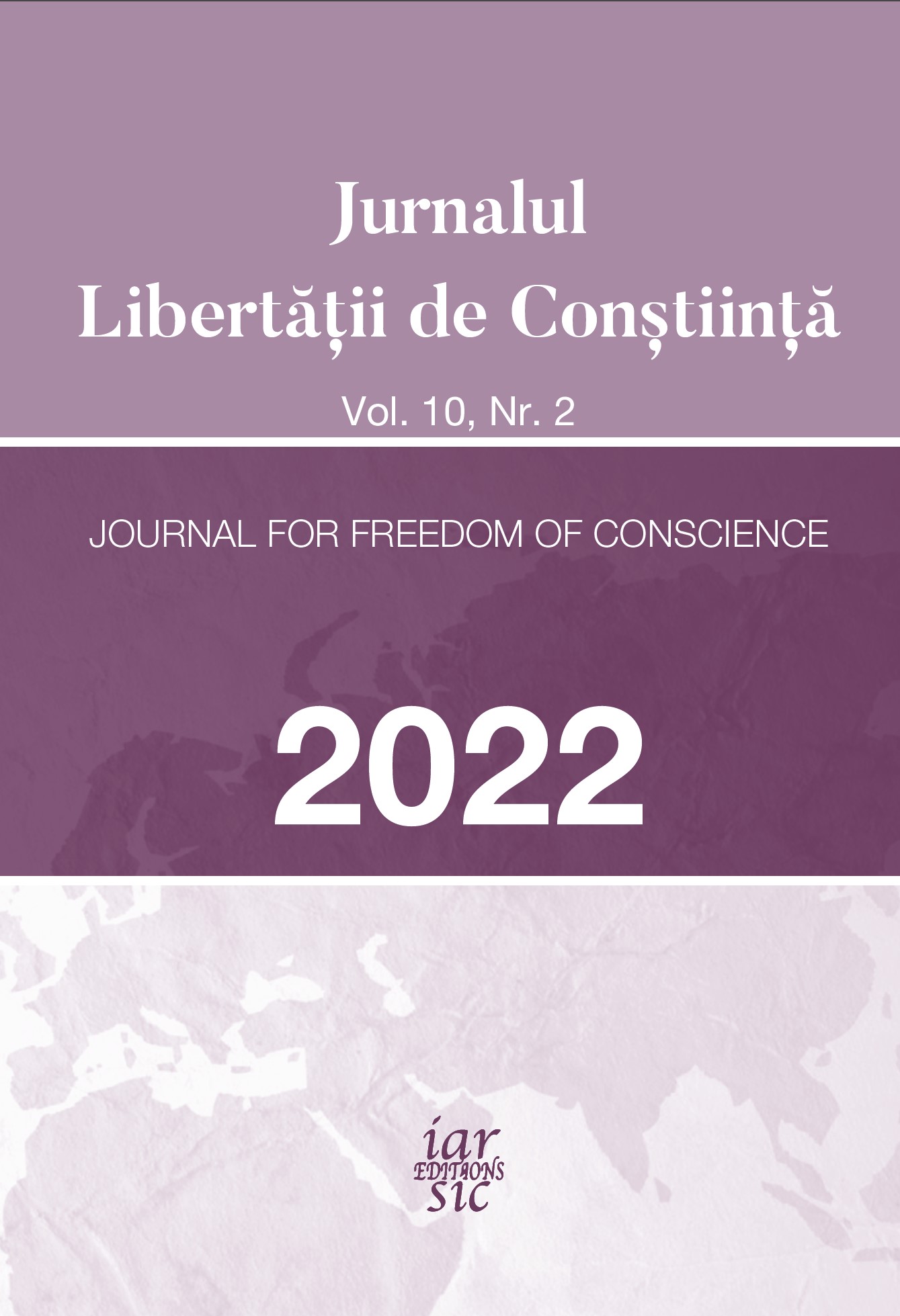
Keywords: religious freedom; limitations; forum internum; respect;
This study presents religious freedom from a legal perspective through the lens of some of the most important normative acts in the field, in order to highlight some dimensions of this freedom. The presentation of the aspects we felt important to mention, together with the cases to which we refer, highlights some of the problems that may arise in practice. Some of these problems could be solved very easily by a high degree of goodwill, respect for diversity and tolerance, without denying the need to hold accountable those who do not respect the religious freedom of others. Respecting this freedom is somewhat morally incumbent upon us on this continent with a tradition of respecting this freedom. We also mention the obligations of states to protect religious freedom. We have not forgotten to put into discussion the limitations that can be imposed on this freedom and the conditions under which such measures can be taken.
More...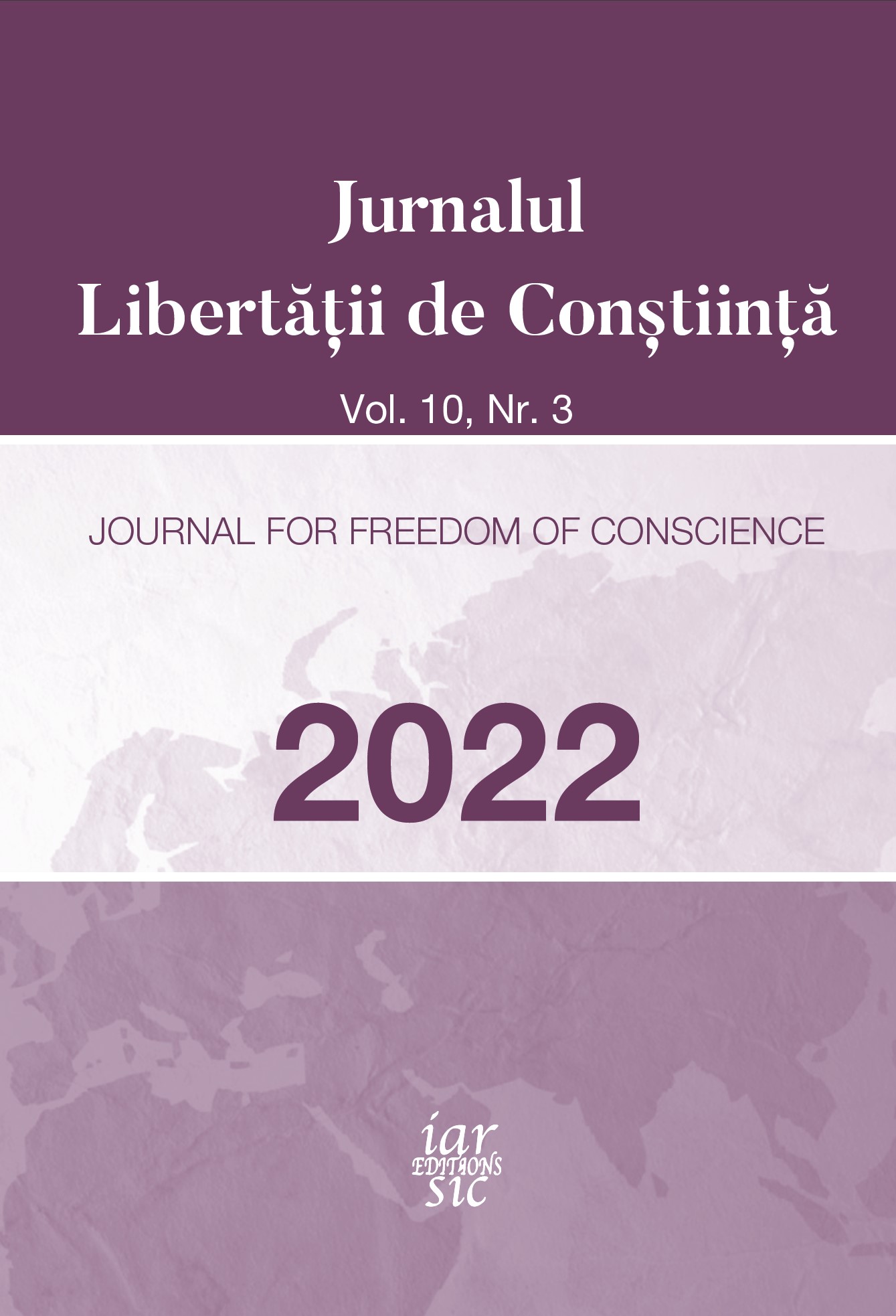
Keywords: Freedom; Christology; Son; Logos; Christ; Glorification;
Religious freedom is nowadays and in European society a right won over time. This freedom was not always so respected and our forefathers paid the price since the beginning of the appearance of the Christian faith. The evangelist John has a very expressive and meaningful religious expression for the first century, the period in which he wrote the gospel that bears his name. Because of his religious convictions, like the one about whom he preached, he suffered the loss of his own freedom for a time. The present work aims to discover what were John’s convictions that emerge from his gospel, for which John was ready to pay with the loss of his own freedom.
More...
Keywords: COVID 19; educational management; higher education institutions; online learning;
The pandemic generated by the SARS-CoV 19 virus had, inaddition to the obvious effects on the health of the population, multiple sideeffects. Of these, the effect on the education system can be found among themost important. The long period of lockdown, coupled with the transition toan online learning system, has been a daunting task for any educationsystem. This article presents the ways to approach educational managementin Romania from the perspective of higher education institutions. Theresearch considers both the specific legislation issued during 2019-2021 andthe ways of implementing and adapting universities during this period. Theobtained results show us that at the level of higher education institutions inRomania there was no consensus in the educational management in COVID19 Era. The conclusion that emerges is that of the need to develop, atnational and institutional level, management plans for such periods of crisisand programs for the concrete implementation of these plans.
More...